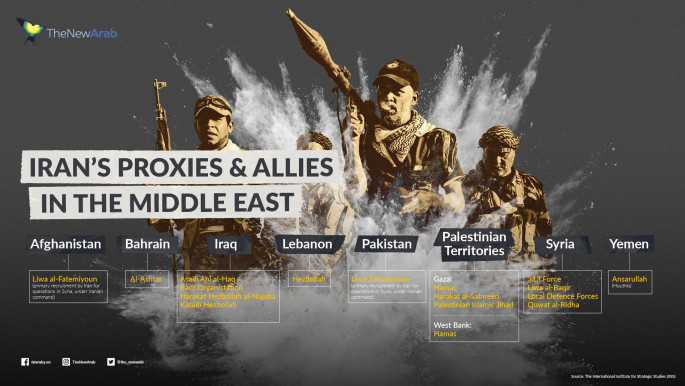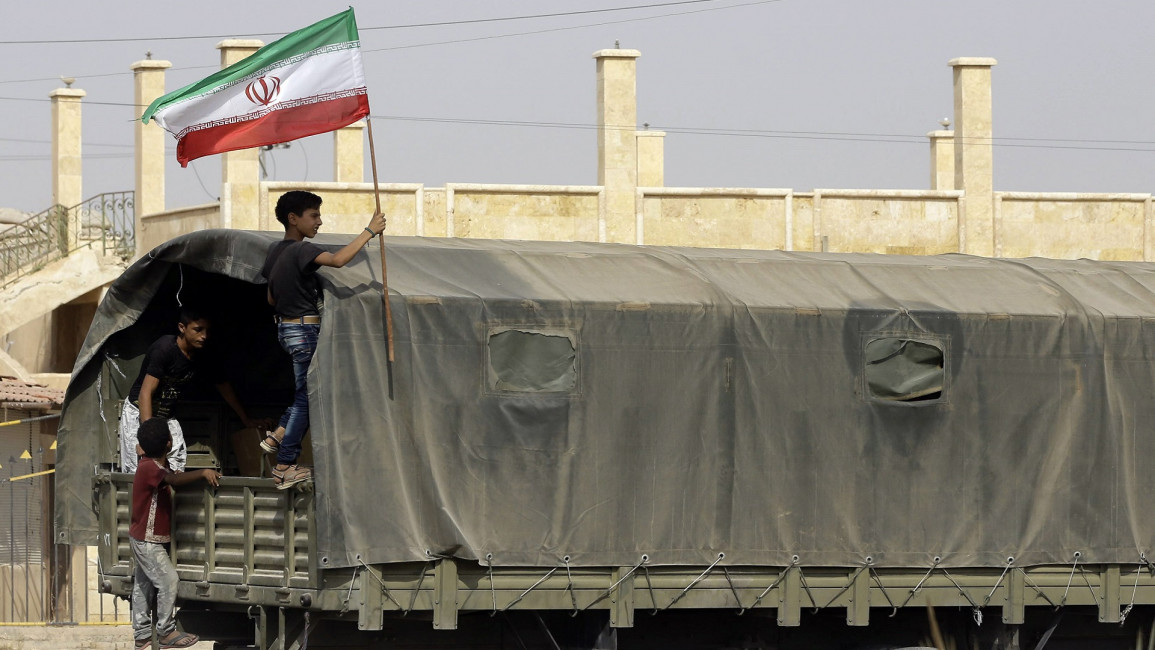Iranian militias re-name Syrian streets names after Ayatollah Khomeini, Qasem Solemani
Monitors have noted that long-standing street names in the southern cities of Al-Mayadeen and Albukamal, Deir Ez-Zor province, have been re-named after important Iranian leaders or revered Shia Muslim figures, signifying Tehran's intentions to cement its hold there.
Iran is one of Assad's key backers and has sent thousands of militiamen, from several countries, to fight on the Syrian regime's side in the war.
Several Syrian websites reported that Anas ibn Al-Malik Street in Al-Mayadeen - which is named after a revered companion of the Prophet Muhammad - is now "Imam Khomeini Street", after the founder of the Islamic Republic of Iran.
Abu Ghrab Street and Saqiyat Al-Rai Street have also been re-named "Qasem Soleimani Street" and "Fatemiyoun Street" respectively.
Qasem Soleimani was a commander of the Iranian Revolutionary Guards Corps (IRGC) overseas wing, widely described as the "architect of Syria's war". He was killed in a US airstrike in Iraq in January.
The Fatemiyoun are an Iranian-sponsored Afghan Shia militia fighting in Syria.
Since 2017, Iranian-allied militias have controlled large parts of Deir ez-Zor province, in the country's east.
The militias include the Pakistani-dominated "Zeinabiyoun" militia and the Iraqi Hashd Al-Shaabi, or "Popular Mobilisation Forces",paramilitary coalition, as well as other armed groups in the areas.
Local sources accuse the militias of not only trying to change the names of streets but also pressuring the local population - who are mainly Sunni Muslims - to convert to Shia Islam.
The militias are sometimes targeted by Israel and US-led international coalition airstrikes, but this has not reduced Iran's influence in the area.
Iran has established permanent military bases in Deir ez-Zor -including the "Imam Ali Base" - and set-up Shia Muslim shrines.
Tha'ir Zazou, a Syrian journalist from Albukamal, told The New Arab’s Arabic-language service that Iran and its allies' aims are the "total change of the nature of the area".
Zazou added that mosques in Albukamal had also been forced to change their prayer times in accordance with those in Shia Islam.
"There is collaboration, or maybe subservience, from the Syrian regime to this Iranian control, even when it comes to aid from international organisations. This aid goes to militia leaders and they distribute it," he said.
Iran has come under huge economic pressure from US sanctions, as Washington seeks to curtail Tehran's influence in the Middle East.
Another Syrian journalist, Firas Allawi, believes that the recent spike in Iran's activities could signal a possible forced military withdrawal from eastern Syria.
"The Iranians know very well that their military presence in Syria is temporary and they will have to leave sooner or later, so they are trying to change the character of the areas they control to their own character," Alawi said.
"The changing of the names of streets in Mayadeen is part of this, and so is the establishment of shrines in eastern Deir ez-Zor province."
Follow us on Facebook, Twitter and Instagram to stay connected



